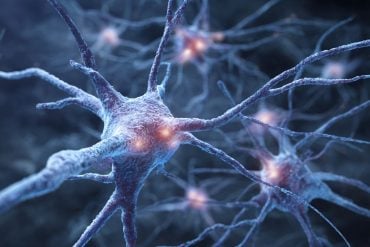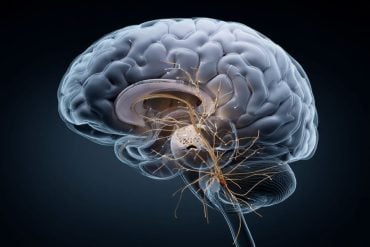Summary: Researchers say those who refrain from drinking alcohol during ‘Dry January’ experience better sleep quality, lose more weight and have more energy than those who don’t participate.
Source: University of Sussex.
New research from the University of Sussex shows that taking part in Dry January – abstaining from booze for a month – sees people regaining control of their drinking, having more energy, better skin and losing weight. They also report drinking less months later.
The research, led by Sussex psychologist Dr Richard de Visser, was conducted with over 800 people who took part in Dry January in 2018. The results show that Dry January participants are still drinking less in August. They reported that:
- drinking days fell on average from 4.3 to 3.3 per week;
- units consumed per drinking day dropped on average from 8.6 to 7.1;
- frequency of being drunk dropped from 3.4 per month to 2.1 per month on average.
Dr Richard de Visser, Reader in Psychology at the University of Sussex, said:
“The simple act of taking a month off alcohol helps people drink less in the long term: by August people are reporting one extra dry day per week. There are also considerable immediate benefits: nine in ten people save money, seven in ten sleep better and three in five lose weight.
“Interestingly, these changes in alcohol consumption have also been seen in the participants who didn’t manage to stay alcohol-free for the whole month – although they are a bit smaller. This shows that there are real benefits to just trying to complete Dry January.”
The University of Sussex research showed that:
- 93% of participants had a sense of achievement;
- 88% saved money;
- 82% think more deeply about their relationship with drink;
- 80% feel more in control of their drinking;
- 76% learned more about when and why they drink;
- 71% realised they don’t need a drink to enjoy themselves;
- 70% had generally improved health;
- 71% slept better;
- 67% had more energy;
- 58% lost weight;
- 57% had better concentration;
- 54% had better skin.
Dr Richard de Visser’s findings come from three self-completed online surveys: 2,821 on registering for Dry January; 1,715 in the first week of February; and 816 participants in August.
A new YouGov poll undertaken for Alcohol Change UK showed that one in ten people who drink – an estimated 4.2 million people in the UK – are already planning to do Dry January in 2019.
Dr Richard Piper, CEO of Alcohol Change UK, said:
“Put simply, Dry January can change lives. We hear every day from people who took charge of their drinking using Dry January, and who feel healthier and happier as a result.

“The brilliant thing about Dry January is that it’s not really about January. Being alcohol-free for 31 days shows us that we don’t need alcohol to have fun, to relax, to socialise. That means that for the rest of the year we are better able to make decisions about our drinking, and to avoid slipping into drinking more than we really want to.
“Many of us know about the health risks of alcohol – seven forms of cancer, liver disease, mental health problems – but we are often unaware that drinking less has more immediate benefits too. Sleeping better, feeling more energetic, saving money, better skin, losing weight… The list goes on. Dry January helps millions to experience those benefits and to make a longer-lasting change to drink more healthily.”
Signing up for Dry January increases the chance that you’ll get the most out of the month. You can download Try Dry: The Dry January App to track your units, money and calories saved, plus many more features. Or you can sign up at dryjanuary.org.uk for regular support emails with tips and tricks from experts and others like you.
Dry January is run by the charity Alcohol Change UK. People can now sign up for Dry January via a website and a free app.
Source: Anna Ford – University of Sussex
Publisher: Organized by NeuroscienceNews.com.
Image Source: NeuroscienceNews.com image is credited to Alcohol Change UK.
[cbtabs][cbtab title=”MLA”]University of Sussex”How ‘Dry January’ is the Secret to Better Sleep and Losing Weight.” NeuroscienceNews. NeuroscienceNews, 28 December 2018.
<https://neurosciencenews.com/dry-january-sleep-weight-loss-10397/>.[/cbtab][cbtab title=”APA”]University of Sussex(2018, December 28). How ‘Dry January’ is the Secret to Better Sleep and Losing Weight. NeuroscienceNews. Retrieved December 28, 2018 from https://neurosciencenews.com/dry-january-sleep-weight-loss-10397/[/cbtab][cbtab title=”Chicago”]University of Sussex”How ‘Dry January’ is the Secret to Better Sleep and Losing Weight.” https://neurosciencenews.com/dry-january-sleep-weight-loss-10397/ (accessed December 28, 2018).[/cbtab][/cbtabs]






